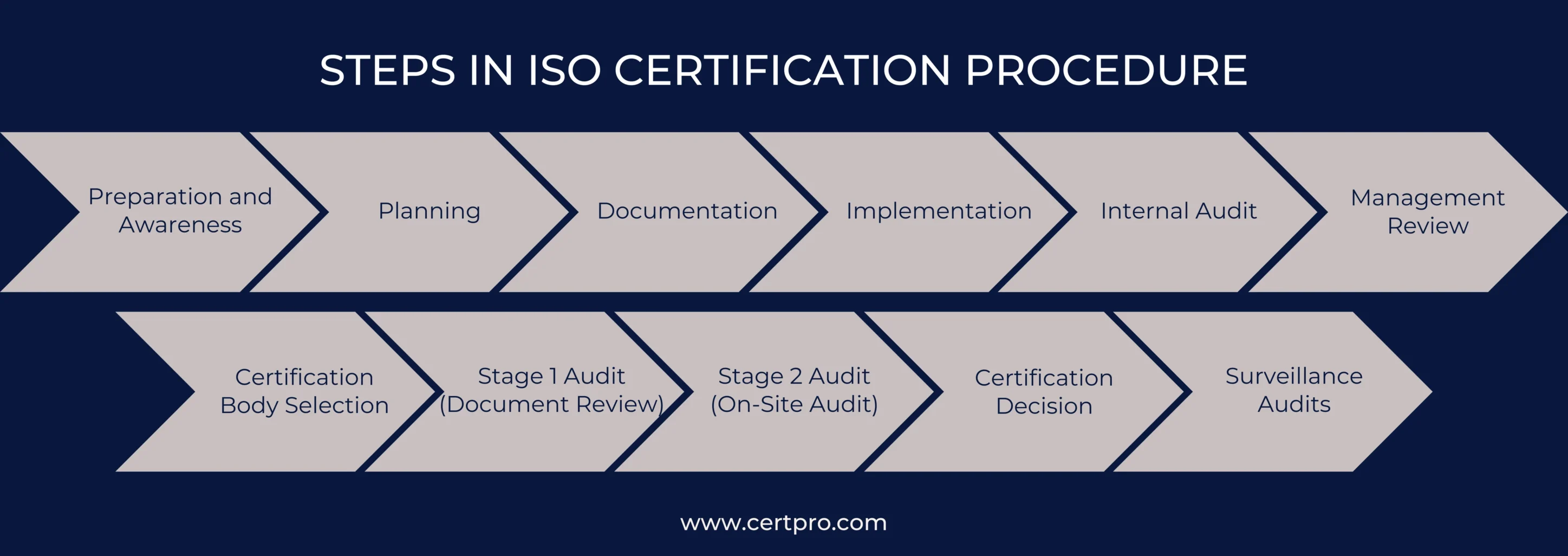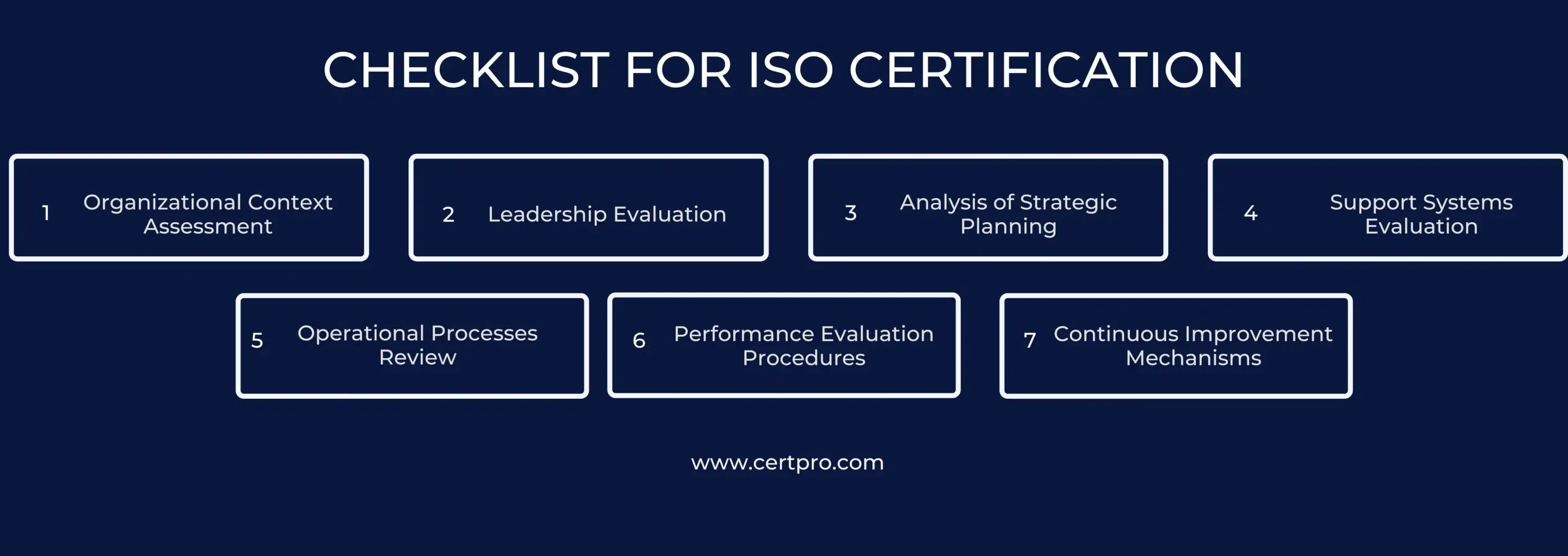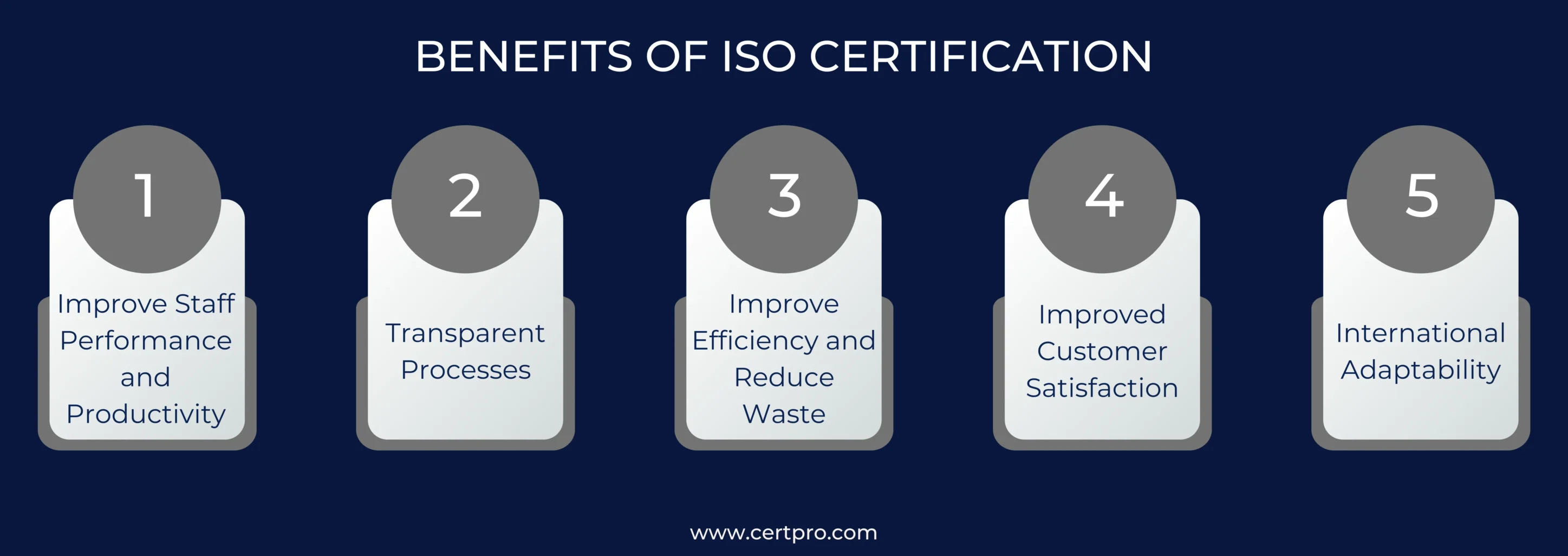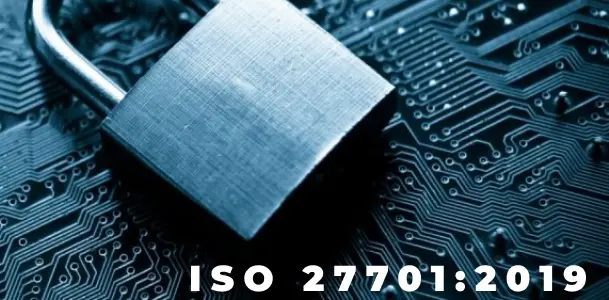DENMARK
ISO CERTIFICATION IN DENMARK
Businesses are not limited to national or continental borders. Companies want to use their goods or services to seize the worldwide marketplace. Therefore, organizations are finding ISO certification to be more critical. In addition, ISO certification increases trust among customers and stakeholders. It confirms that the company follows international production, quality assurance, and commercial standards. Thus, ISO certification in Denmark ensures that quality process standards are validated. Furthermore, the non-governmental ISO organization upholds the systems’ effectiveness, quality, and services. Again, ISO was founded for global organization and collaboration in the middle of the 20th century. Hence, organizations are getting ISO certifications to demonstrate their quality and standards.
Furthermore, ISO certification in Denmark enhances international trade by guaranteeing the quality of goods and services. With accreditation, industrial welfare will improve worldwide. Moreover, ISO certification in Denmark raises the security level for staff and clients. Therefore, one must know the significance of ISO in Denmark. Thus, companies are obtaining ISO certification to demonstrate their commitment to regulations relevant to the sector.
Additionally, ISO certifies the quality of products and facilitates international trade. Hence, improving companies worldwide is the primary objective of the certification. In Denmark, ISO certification guarantees worker safety and the quality of goods and services for customers. Read the entire page to discover the procedures and benefits of obtaining ISO certification in Denmark.
WHY ISO CERTIFICATION IN DENMARK?
Organizations with ISO certification in Denmark adhere to a global standard. Therefore, it assures partners and clients that the company continues to provide excellent services. Again, it demonstrates the company’s dedication to maintaining product quality. Sometimes, forming business alliances requires ISO certification. Henceforth, ISO certification in Denmark guarantees that services are of high quality and comply with rules. Thus, it offers opportunities and a competitive advantage in the international market.
ISO certification in Denmark facilitates international trade and corporate expansion. Thus, complying with ISO standards simplifies operations, lowers service costs, and boosts productivity. It guarantees constant, excellent goods and services to help clients. Moreover, one must comprehend and manage the certification procedure. The certification increases the competitive advantages, increases access to the worldwide market, and enhances the operational quality of your company.
UNDERSTANDING ISO CERTIFICATION IN DENMARK
ISO 9001 certification in Denmark shows the organization’s dedication to providing high-quality goods and services. Therefore, the ISO 14001 standard emphasizes sustainable growth, and environmental issues are becoming essential. Similarly, ISO 2700 is necessary for data protection and fits perfectly with Denmark’s digital transformation projects. In Denmark’s varied market, ISO certification is essential for boosting consumer confidence and enabling businesses to compete globally. Additionally, it streamlines procedures, cutting waste and removing inefficiencies in functionality. Thus, ISO certification in Denmark improves product reliability and proves compliance with strict requirements. In Denmark, ISO certification enables businesses to build robust frameworks aligned with international best practices. Companies that give quality, sustainability, and security priority not only gain for themselves but also help to improve Denmark’s position.
The International Organization for Standardization (ISO) publicly acknowledges adherence to particular standards in a management system, processes, products, or services. Therefore, ISO in Denmark creates and distributes standards to guarantee effectiveness, safety, and quality in various sectors. Widespread use of ISO standards makes it easier for Danish companies to enter other markets legitimately. Businesses with an ISO certification frequently have a competitive advantage as they demonstrate their dedication to quality and ongoing improvement.
Related Links
ISO 27001 in Denmark
HIPAA in Denmark
GDPR in Denmark
PCI-DSS in Denmark
SOC in Denmark
VAPT in Denmark
ISO 20000 in Denmark
ISO 22301 in Denmark
ISO 21001 in Denmark
ISO 41001 in Denmark
ISO 50001 in Denmark
ISO 29001 in Denmark
ISO 14001 in Denmark
ISO 45001 in Denmark
ROHS in Denmark
TQM in Denmark
ISO 22000 in Denmark
FSSC 22000 in Denmark
HACCP in Denmark
HALAL in Denmark
GMP in Denmark
KOSHER in Denmark
ISO 17025 in Denmark
ISO 13485 in Denmark
CE Mark in Denmark
GLP in Denmark
GDP in Denmark
Furthermore, ISO 14001 certification focuses on environmental management and sustainability, meeting client needs. ISO certification is essential to Danish suppliers of global supply networks. It emphasizes ongoing improvement, a cornerstone of ISO certification, and helps Danish businesses stay competitive. Hence, ISO certification in Denmark improves a company’s reputation by proving compliance with global quality standards and improving the client’s trust.

STEPS IN ISO CERTIFICATION PROCEDURE IN DENMARK
The process calls for the following steps to be certified successfully. However, the processes may be adjusted to the company’s needs.
Preparation and Awareness: To apply ISO standards, knowing the organization’s aims and objectives is necessary. Hence, it facilitates understanding standards’ needs, advantages, and uses.
Planning: Effective planning can help carry out strategy more effectively. The company needs to find out the gap. This helps in making a plan to resolve the problems. Thus, a list of changes should be made to improve legal status.
Documentation: A documentation method is needed to implement compliance. It helps you review the process again, allowing the auditor to find any possible standards gaps.
Implementation: These steps must establish rules and procedures for successful implementation. Therefore, tracking and controlling changes are also necessary for better work.
Internal Audit: It helps to review the tools and see how well the plan works. Furthermore, an internal audit finds and recognizes the vulnerabilities of your organization.
Management Review: This evaluates the ISO application’s success, usefulness, and growth and decides what should be changed or improved.
Certification Body Selection: Businesses are getting certification from certified bodies besides ISO. So, be careful when choosing certification groups based on their knowledge and skills.
Stage 1 Audit (Document Review): In this step, documentation and processes are reviewed to ensure they comply with the standards, fix any problems, and ensure the work meets the quality standards set.
Stage 2 Audit (On-Site Audit): An external auditor will conduct a final audit after the changes are made. This process ensures that non-conformities are gone and gets an ISO report.
Certification Decision: The end goal of the approval process is the ISO audit report. After reviewing the whole process, the auditor will write the report.
Surveillance Audits: It ensure that regulations are followed. Also, regularly monitoring and auditing the policies and methods improves their effectiveness.
Collaboration and cooperation with the auditing team can make the process more straightforward for you.

ISO CERTIFICATION PROCESSING TIME
In Denmark, getting ISO approval is a long process that takes at least three to six months. The main goal is to follow specific steps connected to certain standards. Therefore, companies must set up and keep up the system before planning for the first audit. However, implementing controls for ISO certification in Denmark is a complex process that requires expert intervention. In this regard, we can seek help from Certpro, ISO consultants in Denmark. We could help your business in getting ISO certified. In Denmark, companies must take the proper steps to get ISO approval. The certification is continued for three years and must be inspected yearly to avoid non-compliance risk. CertPro ensures that things are done efficiently and legally while keeping ISO approval costs as low as possible.
CHECKLIST FOR ISO CERTIFICATION IN DENMARK
Use the following audit guide to make sure you’re following ISO standards:
Organizational Context Assessment: It helps to know why the company wants to be certified. It looks at both internal and external factors, as well as the demands of parties. Thus, it explores the chances and risks of compliance.
Leadership Evaluation: This review examines how well the organization’s leaders run the certification process and how they create a setting that supports ISO standards.
Analysis of Strategic Planning: Strategic planning ensures that ISO standards are followed. It looks at how ISO standards are used in strategy planning. So, it ensures that ISO approval considers risk management and resource distribution.
Support Systems Evaluation: This reviews whether support tools follow ISO standards. In this case, ensure that the training, tools, and structure uphold the standards.
Operational Processes Review: This step carefully checks the working methods. It ensures that they follow ISO rules and urges everyone to follow them.
Performance Evaluation Procedures: Follow ISO standards and use methods for continuous performance review. Thus, it creates and uses organized ways to monitor an organization’s success over time.
Continuous Improvement Mechanisms: As per ISO guidelines, include steps to encourage constant growth. Therefore, it shows your dedication to long-term success and ISO compliance by starting programs that help processes, goods, and systems improve constantly.

POPULAR ISO STANDARDS IN DENMARK
Of the 14 quality management standards, ISO 9001, part of the ISO 9000 family, is the most well-known. The first version of ISO 9001 came out in 1987, and the most recent version, ISO 9001:2015, stresses the importance of building a robust Quality Management System (QMS). In addition, this system helps businesses prepare to make high-quality goods by focusing on the customer, improving constantly, and implementing the best management practices across the whole industry. ISO 14001 is the most essential certification in the ISO 14000 family of environmental management standards. Like ISO 9000, it sets rules for being responsible to the world. Further, ISO 14001 is the only standard in this family that companies can get certified for, which shows that they are committed to doing things that are good for the environment.
ISO 27000 is about using technology to improve security and keep company valuables safe. ISO 27001:2013 is a management-oriented system, and ISO 27002:2013 is a technical paper that lays out a code of behavior for people who work in information security. These are the most critical standards in this group. ISO 22000 ensures successful food safety management plans are set up and used. Therefore, it includes standards like 22001 for food and drinks and 22002 for controlling the processes used to make food. Many groups in the food business can use these standards.
In contrast to other ISO standards, ISO 13485 is a document unique to the medical device business. It was first implemented in 2003 and updated in 2016. It establishes a Quality Management System for designing and making medical tools for the healthcare industry.
BENEFITS OF ISO CERTIFICATION IN DENMARK
In Denmark, getting ISO certification confirms that goods and services meet high standards worldwide. It can also help businesses compete and make customers happier. ISO in Denmark ensures that rules are followed correctly, which lowers the chance that a company will fail. Businesses gain from the ISO certification process in Denmark because it helps them grow.
Adopting ISO standards can be helpful in many ways. Here are just a few of the perks that could happen:
- Improve Staff Performance and Productivity: ISO certification formalizes the operational procedure. Thus, it aids in developing a documentation process and protocol for emergency response. Accordingly, the employees can identify their duties and responsibilities in maintaining the standards.
- Transparent Processes: The certification allows the organization to maintain proper documentation and records. Therefore, it helps to recognize the risks and vulnerabilities in an organization and develop a mitigation plan.
- Improve Efficiency and Reduce Waste: It improves your organization’s operational process. Enhanced protocols and guidelines save costly errors and delays. In addition, adopting standards keeps your company on the cutting edge and saves years of effort and experience.
- Improved Customer Satisfaction: ISO certification in Denmark offers better customer experiences. Further, the standards concentrate on identifying and satisfying customers.
- International Adaptability: Thus, implementing ISO certification in Denmark allows your business to expand globally. It offers a competitive edge in the global marketplace.
Lastly, getting ISO in Denmark helps a business’s reputation in other countries. It demonstrates that the company follows honest, long-lasting practices that ensure smooth operations.

INDUSTRIES THAT BENEFIT FROM ISO CERTIFICATION IN DENMARK
Many Danish businesses know that ISO approval is vital to their success because it continues to bring many benefits and significant effects. These certifications are more than just status; they show a solid dedication to quality, safety, and the environment. In the production industry, ISO 9001 certification helps improve the quality of products and make operations run more smoothly. This certification makes customers happier and gives businesses an edge over their competitors by encouraging a mindset of continuously improving. Customers see ISO certification in Denmark as a sign of trustworthiness.
ISO 27001 approval is critical in Denmark’s IT business as data gets more valuable. This certification is essential for using new technologies to their fullest while keeping private information safe and making risk management and data security stronger. In addition to making money, it’s crucial to build trust with clients in a variety of settings. At the same time, the ISO/TS 16949 standard, which is specifically made for the car industry, strengthens Denmark’s position as a world leader in creating high-quality vehicles that are safe and last a long time.
These certifications affect more than just one company. They encourage environmentally friendly building practices and push the boundaries of environmental building technologies in Denmark. Business owners in Denmark hire ISO experts to help them get certified and ensure they follow ISO standards. They have obtained certifications that strengthen data security, privacy, and healthcare standards in Denmark to keep this promise. These include ISO 27001 certification, SOC 2 certification, GDPR certification, HIPAA certification, and PIPEDA certifications. In Denmark, getting ISO approval shows that you care about the well-being of society, the earth, and your business. The fact that ISO experts are involved shows that companies want strategic advice on best dealing with certification situations.
CERTPRO: EMPOWERING YOUR BUSINESS TO ATTAIN ISO CERTIFICATION EFFORTLESSLY
Getting ISO certification in Denmark shows that your business is trustworthy globally. Because of this, CertPro can help your company adopt ISO standards. We give our customers the best services possible at affordable prices. In addition, our experts will help you set up a robust framework for approval. CertPro changes the standard based on what the company needs. Again, we will offer complete services during certification and annual audits.
FAQ
What is the significance of ISO certification in Denmark?
In Denmark, ISO certification holds paramount importance as it ensures adherence to international quality standards across diverse industries. This commitment is essential for operational efficiency, quality assurance, and building trust in the competitive global market.
How can a company in Denmark obtain ISO certification?
To obtain ISO certification in Denmark, a company must undergo processes such as certification preparation, applying ISO standards, internal audits, selecting a certification body, and completing external audits. These steps are crucial in demonstrating conformity to international standards.
What are the key benefits of ISO certification in Denmark?
ISO certification in Denmark offers various advantages, including increased reputation, improved market access, enhanced operational efficiency, customer trust, regulatory compliance, and alignment with sustainable practices. These benefits contribute to the overall success and competitiveness of Danish organizations.
Why is ISO 9001 certification significant for Danish organizations?
ISO 9001 certification in Denmark signifies a commitment to quality management, enabling companies to develop reliable and customer-focused goods and services. This certification is crucial for enhancing product quality and gaining a competitive advantage in the marketplace.
What are the essential steps in the ISO certification process in Denmark?
The ISO certification process in Denmark involves preparation, planning, documentation, implementation, internal audit, management review, certification body selection, document review, on-site audit, certification decision, and surveillance audits. These steps ensure a systematic approach to achieving and maintaining ISO certification.
HOW DOES ISO 27001 FOR STARTUPS IN INDIA HELP TO MEET GLOBAL STANDARDS?
India is the world’s fifth-largest economy, with a vibrant startup ecosystem that supports young professionals in making global changes. After the US and China, India ranks third globally for startup businesses. In this fascinating scenario, ISO 27001 for startups in...
SOC 2 CERTIFICATION IN INDIA: STRATEGIES FOR TECH SECTOR COMPLIANCE IN 2025
The AICPA developed SOC 2 certification in India as a collection of guidelines to assist IT businesses in protecting client data. With the rapid growth of India's digital sector, safeguarding personal data is more crucial than ever. Businesses must demonstrate their...
IT COMPLIANCE IN 2024: ESSENTIAL TRENDS AND BEST PRACTICES
IT compliance is essential for every organization to secure the integrity and accountability of data. The process also helps develop the business and enhance its profitability. In today’s digital era, IT compliance has more than just a regulatory checkbox. It plays a...












